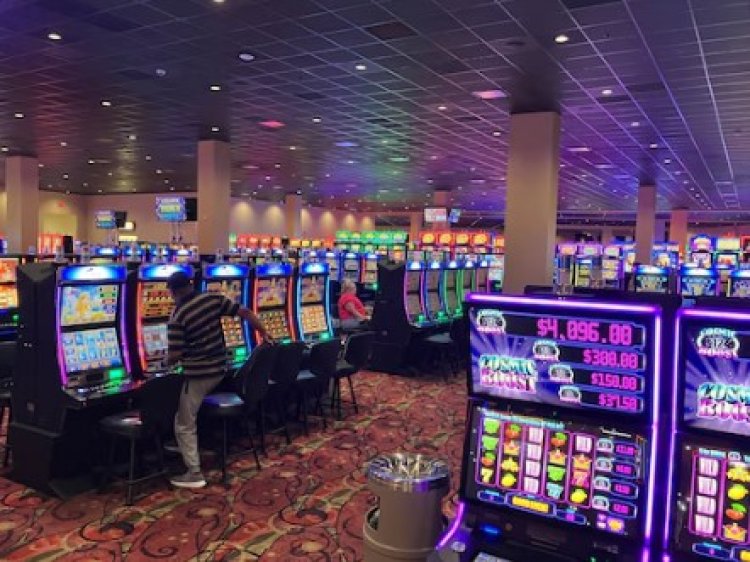Victoryland and Birmingham Race Course ‘Holding On’ Until Alabama Updates Gambling Laws, CEO Says
Victoryland has been navigating Alabama's complex gambling landscape for 40 years, continually seeking the right formula for success.

Victoryland has been navigating Alabama's complex gambling landscape for 40 years, continually seeking the right formula for success.
When Victoryland opened in Macon County in 1984, it was a $10 million facility featuring live greyhound racing nearly 300 days a year. Today, the dogs are gone, and Victoryland stays afloat primarily through horse betting.
Victoryland now operates over 1,000 historical horse racing machines, which resemble slot machines but function differently. These machines use outcomes from past horse races to determine winnings, falling under the legal framework for pari-mutuel betting, which once applied to live greyhound racing.
The Birmingham Race Course Casino, which introduced historical horse racing machines in October 2019, operates similarly, with about 1,000 machines.
Victoryland's CEO, Dr. Lewis Benefield, aspires to revive live greyhound racing and fully reopen Victoryland, including its 300-room Oasis Hotel. The hotel first opened in 2009 when Victoryland was among the largest casinos in the U.S., boasting over 6,000 electronic bingo machines.
However, Benefield acknowledges that revitalizing Victoryland will be challenging unless Alabama lawmakers pass a comprehensive plan that includes full-scale casinos at the state’s former greyhound tracks. This plan also calls for a statewide commission to regulate illegal gambling operations—two provisions in a bill that narrowly failed in the Legislature in May.
Benefield, the son-in-law of Victoryland’s founder Milton McGregor, whose family remains the majority owner, says Victoryland is currently just “treading water.”
“We’re managing to cover our expenses and keep our employees, but there’s no room for economic growth,” Benefield said. “It’s better than nothing, but it won’t allow us to fully develop the Birmingham property or expand Victoryland.”
The historical horse racing machines are popular with customers, offering an experience similar to traditional slot machines but based on historical horse race outcomes. Players can opt for a quick play mode or spend more time analyzing race data, although most choose the faster method.
Victoryland and the Birmingham Race Course have implemented these machines under the approval of racing commissions in their respective counties, paying pari-mutuel taxes on the bets placed. Benefield is confident in the legality of these machines, citing opinions from Alabama attorneys general.
Despite the challenges, Benefield remains hopeful that future legislative changes could pave the way for growth, allowing Victoryland to return to its former glory. Until then, the casino continues to attract customers, including some trying their luck for the first time.







